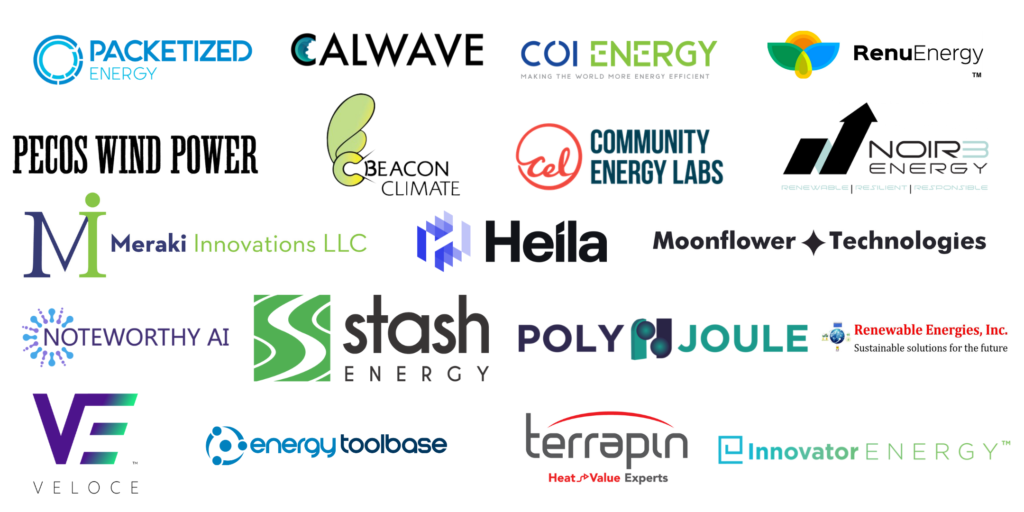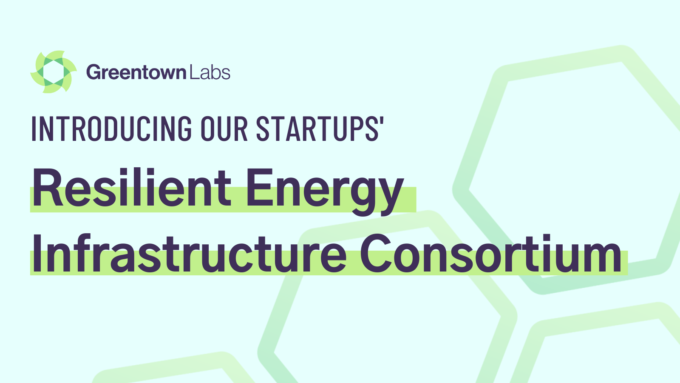The Texas energy crisis in February 2021 reminded us of the precariousness of energy systems and their high costs of failure. At least 111 deaths are confirmed, over 17M homes lost access to clean water, and $200B in damages are projected. This event nearly devastated the state’s power grid due to a frequency drop that put Texas four minutes and 37 seconds away from a months-long blackout. As a pioneering climatetech community, Greentown Labs is issuing this open letter to highlight our solutions for improving American energy resilience and sustainability.
The crippling effects of extreme weather are taking its toll on the aging American infrastructure. The most recent spate of power crises are disheartening reruns of the significant grid outages that Texans experienced during cold spells in 2011 and 1989. Warning signs were dismissed, as they have been elsewhere: consider the Northeast’s heat-triggered cascading grid outages in 2003, grid failures resulting from hurricanes Katrina (2005), Sandy (2012), and Maria (2017), California’s rolling summer blackouts, and countless related incidents.
Blackouts will occur with increasing regularity and severity until we build more resilient energy systems. Resiliency measures include improved weatherization, enhanced inspection methods, distributed energy resources, and a smarter, more equitable grid.
Any grid network could fall victim to the circumstances in Texas as temperatures and storms set new records across the country. The cold weather in February 2021 caused energy demand to skyrocket. Similarly, heat waves cause demand to spike every summer. Extreme increases in demand are exacerbated by the widespread use of inefficient energy appliances like electric resistance heating and plug-in air conditioning. Without innovative technologies described herein, fuel guzzling, highly pollutive “peaker” plants will continue to be called upon to serve these demand spikes and avoid blackouts.
Many Greentown member companies provide solutions that address the root causes of weather-induced failures. Our technologies provide cost-effective tools for building sustainable and reliable energy systems of the future. The diverse innovations across the Greentown community demonstrate the many emerging technologies for improving grid reliability. Such energy solutions are clean and distributed, incorporate storage, improve efficiency, can be aggregated into digitally centralized systems, and could be wholly financed through our network of infrastructure investors.
Clean energy generation is needed to limit greenhouse gas emissions and mitigate the severity of climate change-induced weather events. Distributed generation is needed to safeguard against centralized plant failure or locally intense weather. Member companies at Greentown are working to make solar, wind, wave, and other clean and distributed energy sources more accessible through advanced technology, deployment and infrastructure investment. These innovations will enhance energy security by reducing regional reliance on fuel imports and centralized distribution channels.
Energy storage resources are needed to compensate for intermittent renewable generation and manage demand spikes. Member companies at Greentown are developing safer, longer-lasting batteries to help electrify transportation, power delivery, and diverse building stock. Greentown member companies are also innovating in other energy storage technologies, such as flywheels, compressed gas, and thermal reservoirs. These innovations will enable clean energy sources to more completely replace legacy systems powered by fossil fuels.
Energy efficiency and demand flexibility resources are needed to reduce demand when grid capacity is scarce and to accelerate the decommissioning of dirty energy sources. Member companies at Greentown are working to eliminate energy waste and holistically improve efficiency through smarter asset management, streamlined monitoring, and novel equipment design. These innovations will engage demand-side solutions and streamline the incorporation of clean energy sources into the grid.
Digitally orchestrated systems are needed to maximize the values of distributed energy resources. Member companies at Greentown are working to better integrate energy systems across scales, from microgrids to bulk power networks. These innovations will aggregate energy generation, storage, and efficiency assets into systems that ensure reliability, minimize cost, and accelerate the adoption of clean energy sources.
The American grid is a technological marvel—an elaborate and continental machine that powers every essence of our society. However, the grid’s century-old foundation was built for a bygone era and is now crumbling in the face of rapidly changing climate conditions, increased energy demand, and new energy technologies. To safeguard against future power crises and their calamitous consequences, we need a revamped and smarter grid that is redesigned for resilience, sustainability, and equity.
Greentown members recognize the urgency for energy solutions. We are excited to announce the resilient energy infrastructure consortium (REIC), which will serve to mobilize deployment of our technology suite. The REIC is eager to collaborate with any stakeholders dedicated to taking climate action. The consortium is a one-stop shop to exchange information, analyze opportunities, and implement solutions.
If you represent a community, municipality, agency, utility, government, or corporation seeking stronger energy resiliency and faster decarbonization, we—the undersigned—stand ready for your inquiry. By completing this form, you can introduce your organization, the state of its climate action efforts and identify areas of interest in energy infrastructure solutions. Thereafter, the REIC will work to connect your organization with the Greentown members most capable of serving your needs in the most efficient and effective ways. For any further information, we can be reached at hello@greentownlabs.com.
Sincerely,
Beacon Climate Innovations, Calwave Power Tech, COI Energy Services, Community Energy Labs, Energy Toolbase, Heila Technologies, Innovator Energy, Meraki Innovations, Moonflower Technologies, Noir3 Energy, Noteworthy AI, Packetized Energy, Pecos Wind Power, PolyJoule, REI, Renu Energy Services, Stash Energy, Terrapin Geothermics, and Veloce Energy


